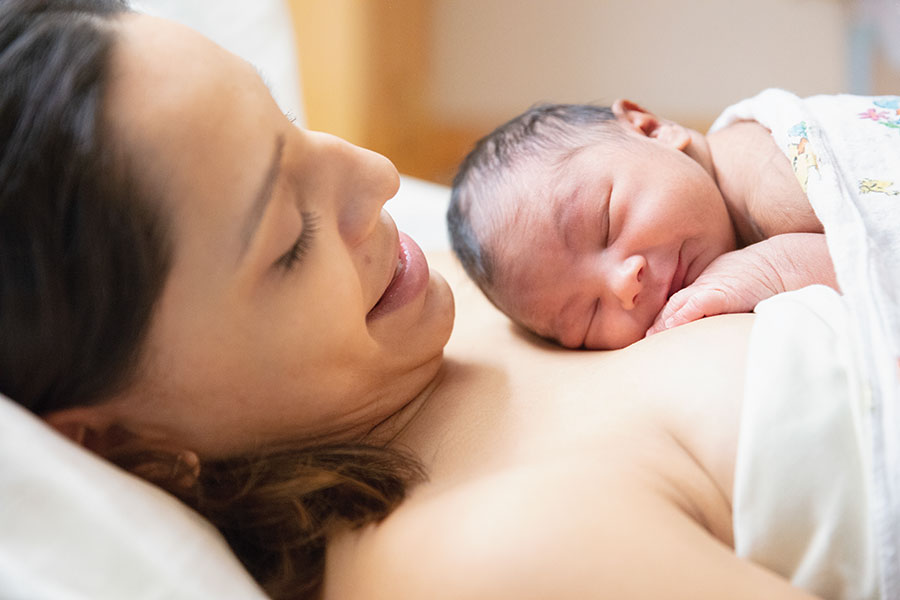
Nine Ways to Bond with Your Baby
- Home
- Live Well Blog
- Nine Ways to Bond with Your Baby
The bond you form with your baby starts as soon as they are born. As one of the most important tasks of babyhood, creating a strong bond becomes a lasting closeness and connection that gives your baby the security they need to explore and learn about the world. Babies who have a strong bond to their parents can handle daily stress like hunger and discomfort.
Your bond grows stronger when you and your baby respond to each other. For example, when your baby cries, you may respond with a diaper change, or a feeding. When you smile at your baby, they smile back at you. These back and forth responses to each other build a trusting bond and show your baby that the world is a safe and good place to be.
Babies who are strongly tied to mom and dad know that their basic needs like food, clothing, sleep, and attention will be met. Likewise, a close bond to your baby allows you to respond more easily to their needs.
The bond you create may also help your baby become a healthy eater. From breast/chest-feeding or formula feeding to starting solid food — and all the moments in between — you have many ways in which you can create a deep, trusting bond with your baby.
Here are nine simple ways to bond with your baby early on:
1
HOLD YOUR BABY
Holding your baby provides warmth and safety, and is easy to do while nursing or giving your baby a bottle.
2
TOUCH YOUR BABY
Skin-to-skin contact, through touching, rubbing, patting or holding, can soothe your baby when they are upset and give them comfort.
3
MAKE EYE CONTACT
Looking at your baby lets them know they are important to you and they have your full attention. In the early months, making eye contact helps your baby recognize you.
4
SMILE AT YOUR BABY
Your baby will study your face and begin to recognize and copy your expressions. Your baby’s first smile, and all the smiles afterward, are some of the most special moments you will share.
5
WEAR YOUR BABY
Use a sling or baby carrier, to hold and carry your baby while you do other tasks.
6
TALK TO YOUR BABY
When your baby babbles or coos, “talk” back with words or noises. This lets them have a back and forth “conversation” with you and teaches them how to “talk.” When your baby starts solid food, tell them what they are eating by naming the food, its color, and flavor.
7
READ YOUR BABY’S SIGNS
Crying is your baby’s language, and can mean hunger, a poopy diaper, or being too cold. Try to understand what your baby is telling you when they cry. Are they hungry, or just uncomfortable?
Learning your baby’s different signals will help you react correctly. Watch for signs of hunger and fullness to help you feed your baby the right amount. For example, when your baby pulls off the breast/chest or is distracted when drinking a bottle, these signs may tell you they are done eating.
8
BE SWIFT TO RESPOND
Don’t wait too long to react to your baby’s needs. When you are quick to take care of them, they get the message that they are safe and important to you.
9
TAKE CARE OF YOURSELF
Too tired, not eating enough, or just stressed with the demands of a new baby? These can transform you from happy parent to stressed out parent. Don’t neglect your own needs — taking care of yourself will keep you happy and healthy and help you be a better parent.
